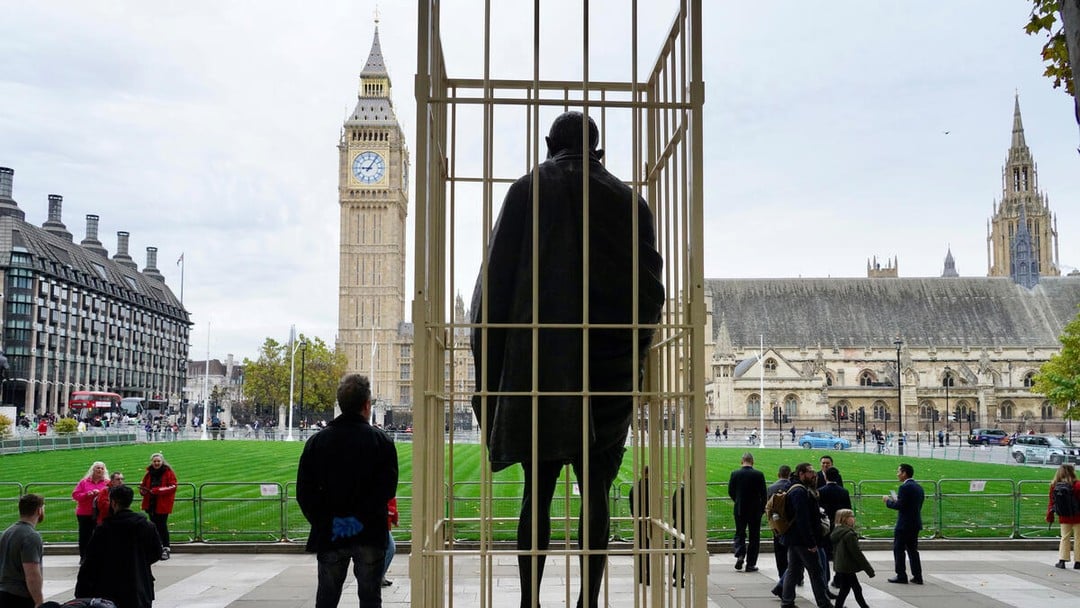Activists highlight protest crackdown in London

Greenpeace activists imprisoned statues in Parliament Square to protest the government's crackdown on peaceful protests
This morning, a group of Greenpeace activists took a bold step to draw attention to the government’s ongoing crackdown on protests. They installed prison bars around the iconic statues of Nelson Mandela, Mahatma Gandhi, and the Suffragist Millicent Fawcett in Parliament Square, transforming these historical figures into symbols of the current plight of activists branded as criminals. The activists aimed to demonstrate that figures once celebrated for championing justice and democracy would risk condemnation under today’s stringent anti-protest laws.
The action coincided with alarming statistics revealed by Greenpeace that show nearly half of all arrests under the Terrorism Act since its inception occurred in the last four months alone, largely targeting individuals at peaceful vigils concerning Palestine Action. The analysis indicates that the Crown Prosecution Service has charged a record number of people with terror-related offences in a very short time, exceeding any annual total since 2001, an unsettling sign of governmental prioritisation of control over civil liberties.
Zack Polanski, Leader of the Green Party of England and Wales, expressed deep concern about the situation: "Calling peaceful protesters ‘terrorists’ is one of the most blatantly ridiculous and dangerous things this government has done." He continued by reflecting on how figures like Mandela, who faced imprisonment for their beliefs, would today be viewed as threats to national security. This concern is echoed by Areeba Hamid, co-executive director of Greenpeace UK, who stated, “If these people were protesting today, this government would not hesitate to arrest them.”
The activists attempted to raise awareness for the increasingly authoritarian measures being implemented, particularly under the government’s Crime and Policing Bill. This proposed legislation seeks to broaden the powers of police, enabling them to prohibit protests near churches and other locations, and even banning face coverings for protesters. Clive Lewis, Labour MP for Norwich South, highlighted the historical context, asserting, “By crushing what little right to protest remains, this government isn’t keeping order, it’s silencing tomorrow’s heroes before they can even speak."
The stakes are high as Parliament debates further restrictions on the right to protest, giving an ominous sense of urgency to current activism. The peaceful vigils that have taken place in Parliament Square opposing the proscription of Palestine Action have resulted in substantial arrests. Since July of this year, at least 2,100 individuals have been apprehended under the Terrorism Act, showcasing the potential dangerous intersection between governmental authority and citizens’ rights.
As the legislative landscape continues to evolve, Greenpeace’s actions serve as a crucial reminder of the historical significance of protest in securing rights and freedoms, urging individuals to reflect on what could be lost if activism continues to be stifled in the name of security.
